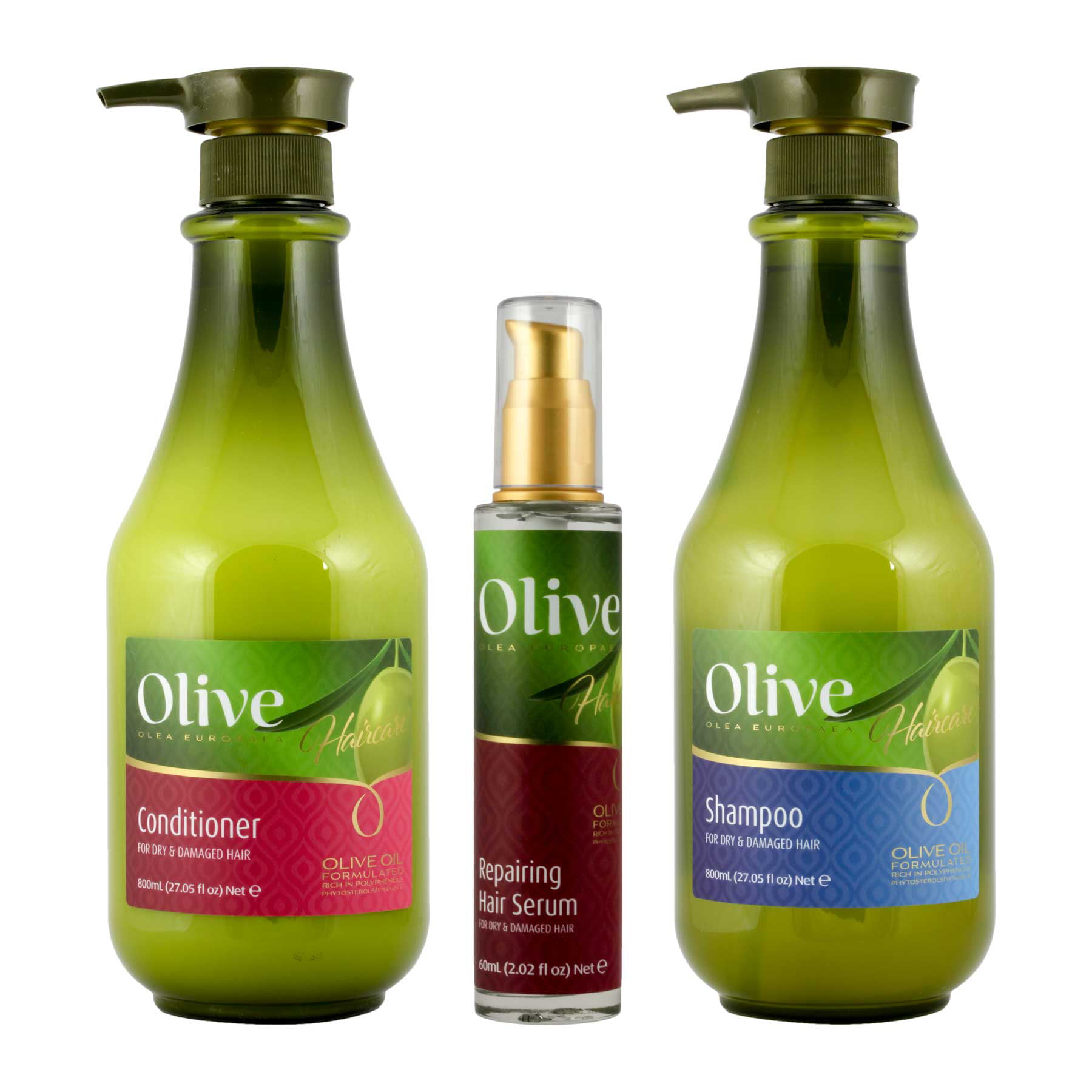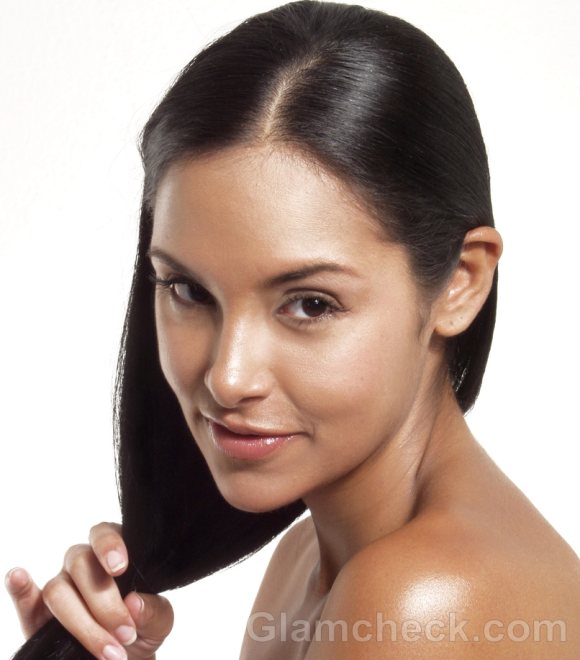Table Of Content

"Olive oil has been shown to have anti-fungal properties, which may be a result of it functioning as a mechanical barrier between the scalp/hair and the environment." Oil is a tried and true go-to for natural hair, and while there are a few different oils that people like to use on their curls, olive oil is at the top of the list. Hailed for centuries as “liquid gold,” olive oil probably makes you think of the Mediterranean diet, a dip for bread, or something you drizzle on vegetables. Cooking isn’t the only thing you can use olive oil for though; it’s actually great for achieving silky, shiny hair and even taming flyaways and frizz.
Prevents hair damage
So if your hair loss is due to inflammation, olive oil could, theoretically, help to reduce some hair loss. If you're experiencing hair loss or scalp inflammation, you could be dealing with a bigger underlying issue, so please go to a professional before you start self-treating with oil. “My favorite is the FEKKAI Brilliant Glossing Multi-Tasker créme,” says Irshinskiy. Extra virgin olive oil is often considered the best choice for hair care because it undergoes minimal processing and retains a higher level of nutrients and antioxidants. Yes, olive oil is generally suitable for all hair types, but its effectiveness may vary from person to person.
ORS Olive Oil Hair Relaxer Lawsuit (Apr 2024 Update) - Schmidt & Clark, LLP
ORS Olive Oil Hair Relaxer Lawsuit (Apr 2024 Update).
Posted: Tue, 05 Sep 2023 07:00:00 GMT [source]
Experts Are Raving About Olive Oil for Hair—If You Use It Right
You also should not use olive oil in your hair if you have dandruff, Zito says. That's because olive oil promotes the growth of the yeast that causes dandruff. But there's a reason why people like model Jerry Hall can't get enough of it for their hair. In 2011, she credited it for iconic, shiny locks sharing with the Guardian the routine that was passed down from her mother.
How we vet brands and products
In my experience, one of the primary benefits of using olive oil for hair and scalp is its moisturizing effects. Olive oil helps to seal moisture into the hair fiber, providing hydration and promoting a healthy environment for hair growth. As I’ve learned, the antioxidants, vitamin E, and oleuropein found in extra virgin olive oil help to reduce the impact of oxidative stress on hair, further enhancing its moisturizing properties. We spoke to a panel of hair pros to find out jojoba oil's benefits, when you should apply it, how long to leave it on, and learn their top picks for jojoba oil-infused products. “Jojoba oil offers numerous benefits for hair health because it’s able to penetrate deeply into the hair follicles to moisturize and nourish the strands from within,” says Philip B, founder of Philip B hair care. The results, he says, are that jojoba oil helps to hydrate dry hair, improve elasticity, reduce frizz, and promote overall hair health.
And if you notice your scalp starts to feel irritated, flaky, or itchy—aka the opposite of how you want your scalp to feel after oiling—stop oiling ASAP and make an appointment with your dermatologist. Bananas are rich in silica7, a natural molecule that closely resembles silicone. Silicones are often used in hair masks and leave-ins as they help smooth frizz by sealing down the cuticle. So by swapping silicones for the banana-derived silica, you'd get similar benefits without the issues of silicones. Not to mention, bananas have significant antioxidant properties8, too. Oleuropein, the primary component of the leaves and drupes of Olea europaea, is chemically from the group called polyphenols, which have many pharmacological properties.

"The excess unsaturated fatty acids can lead to inflammation and scaling," says Dr. Mikailov. Olive oil helps to restore shine, and strength, and promote scalp health, while coconut oil can moisturize the hair, strengthen hair follicles, and reduce protein loss. The choice between these two oils depends on your specific needs and hair type. Some may prefer olive oil for its restorative properties, while others may lean towards coconut oil for added moisture and strength. Experimenting with both can help you determine which one works best for your hair.
Can I mix olive oil with other hair oils?

Many of the reasons olive oil is healthy to consume in your diet are also why it does such a great job of nourishing your hair and scalp externally. Olives have been cultivated for over 6,000 years, and there are reports of them being used on the skin and hair to make it healthier 2. So the solution to dry and damaged hair and scalp might the Extra Virgin Olive Oil found in our kitchen. A hair mask is a conditioning treatment you leave in for an extended period, usually around 30 minutes to 2 hours, depending on the hair mask ingredients, your hair type, and the degree of conditioning you need. As for the kind of olive oil to use in your hair, Dr. Luke recommends using extra virgin olive oil or using hair products formulated with the oil.
According to a 2017 review of studies on the health benefits of olive oil, a compound called squalene, found in virgin olive oil, has the ability to act as a moisturizer in various cosmetics. Although this particular study didn’t focus specifically on olive oil, the review did state that monounsaturated oils and saturated oils may penetrate the hair shaft more fully than polyunsaturated oils. One of the best ways to take advantage of olive oil’s moisturizing capabilities is by using it in a hair mask. Although there isn’t a lot of research to support the use of olive oil for hair care, some research does show that it has a moisturizing effect. Olive oil should not be used by those who have dandruff or seborrheic dermatitis as it encourages yeast to thrive, worsening these conditions Dr. Luke explains.
Straight hair, while often looking sleek and shiny, can be prone to oil buildup. Using olive oil on straight hair has demonstrated potential as a moisturizer and conditioner. However, it’s important to remember that less is more, particularly when it comes to applying olive oil on straight hair.
Additionally, due to its thick consistency, olive oil can be challenging to wash out completely, leading to a buildup of residue on the hair and scalp. Yes, you can use any type of olive oil on your hair, whether it's extra virgin, virgin, or regular olive oil. Coarse or curly hair — Olive oil will help to define and nourish your curls. Rosemary essential oil — Adding an essential oil for hair like rosemary can stimulate the hair follicles to spark new hair growth.
Woman Shares Homemade Recipe She Claims Cured Her Distressing Hair Loss - Newsweek
Woman Shares Homemade Recipe She Claims Cured Her Distressing Hair Loss.
Posted: Thu, 21 Sep 2023 07:00:00 GMT [source]
In my case, I have learned that my coarse, color-treated hair has responded well to the use of olive oil. However, if you have oily hair or a sensitive scalp, you may need to adjust the amount of oil used or try a different oil altogether. Yes, you can apply olive oil overnight on your hair for a deep conditioning treatment. Suitable for all hair types, jojoba oil mimics the natural sebum of your scalp, keeping your hair moisturized.
Providing you do not have an oily scalp, you can gently massage the oil that remains on your fingertips into the scalp. To maximize the mask’s benefits, I cover my hair with a shower cap and let the oil sit for at least 30 minutes. However, it is vital to understand that the effectiveness of olive oil may vary based on an individual’s hair type and specific needs. People with dry, thick, or damaged hair may benefit the most from olive oil treatments, while those with naturally oily hair or scalp should proceed with caution. By incorporating olive oil into hair care routines and understanding the proper application techniques, one can achieve lustrous, healthy locks. So olive oil has long been praised for its numerous health benefits, and recently its uses have extended to hair care as well.
Low-quality olive oil may contain impurities and additives that can compromise its benefits. By ensuring the olive oil I use is of high quality and cold-pressed, I can be confident in reaping the full benefits of this natural hair treatment. She also says that if your hair is on the finer side, apply pure jojoba oil with caution. “Use it sparingly since too much oil can easily make the hair look greasy and weigh it down,” she explains.
This is the same reason experts agree that olive oil should only be used on the ends of the hair, and not the scalp. Before you saturate your hair in EVOO, though, it's key that you not only familiarize yourself with the main olive oil benefits for hair, but also mistakes to avoid when utilizing the ingredient. Here, Anar Mikailov, M.D., F.A.A.D., a board-certified dermatologist and co-founder of Skintensive, spells out what you need to know. As a cornerstone of the Mediterranean diet, Jennifer Lopez's favorite skin-care ingredient, and vinegar's soulmate, olive oil has quite the reputation.
Additionally, Hill says hair oils can penetrate your hair strand and reduce the amount of water your hair absorbs—which, in turn, cuts down on shrinkage and frizz. Trichologist and celebrity stylist Kari Williams says that although most can benefit from using it, thin hair can be easily weighed down by olive oil, so those people should avoid overdoing it. One major concern when using olive oil as a hair treatment is the risk of allergic reactions. In some cases, people might experience itching, redness, or even swelling of the scalp as a reaction to the oil.

No comments:
Post a Comment